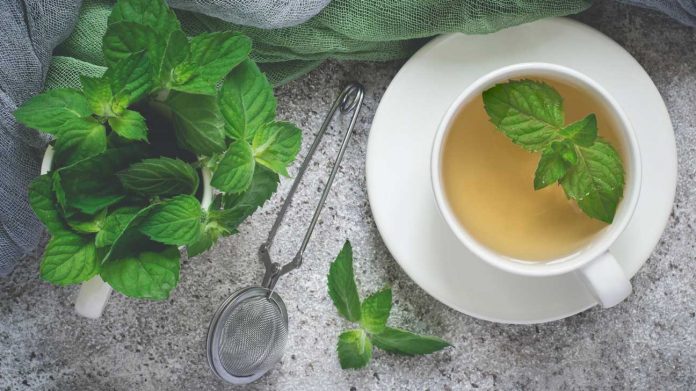Honey | Probiotics | Bromelain | Peppermint | Marshmallow root | Thyme | Salt gargle | Ginger| Slippery elm | Turmeric | Avoid GERD triggers | Fluids |Steam | N-acetylcysteine |Prevention | Cold prevention | Call a doctor|
A cough is a common health complaint. While medications are sometimes necessary, natural cough remedies may also help.
A cough is one of the most common reasons people may seek medical treatment. An estimated 40%Trusted Source of all cases may require a referral to a pulmonologist, a doctor specializing in lung conditions.
Generally speaking, coughing is perfectly natural. A cough can help clear your throat of phlegm, dust, and other irritants. However, sustained coughing can also be a symptom of many health conditions.
These may include:
allergies
a viral infection
a bacterial infection
Sometimes a cough isn’t caused by anything related to your lungs. Gastroesophageal reflux disease (GERD) can also cause a cough.
You can treat coughs due to colds, allergies, and sinus infections with several over-the-counter (OTC) medications. Bacterial infections often require antibiotics.
Along with medication treatment, you can ask a doctor about other options to help your cough.
Here we’ve listed a few home remedies to consider.
1. Honey
Honey is a time-honored remedy for a sore throat.
According to a 2018 reviewTrusted Source on the effects of honey on acute cough in children, researchers found that honey may relieve coughs more effectively than some OTC medications. These medications included those containing diphenhydramine (Benadryl), a type of antihistamine, and salbutamol (ProAir), a prescription bronchodilator.
However, the same review didn’t find honey significantly more effective than dextromethorphan (Delsym), an OTC cough suppressant.
You can create your own remedy at home by mixing up to 2 teaspoons of honey with herbal tea or warm water and lemon.
The honey does the soothing, while the lemon juice can help with congestion. You can also eat the 2 teaspoons of honey or spread it on bread as a snack.
Due to the risk of botulism, never feed honey to infants under 12 months oldTrusted Source.
2. Probiotics
Probiotics are microorganisms that can provide a host of health benefits. While they don’t relieve a cough directly, they do help balanceTrusted Source your gastrointestinal flora. Gastrointestinal flora are bacteria that live in your intestines.
This balance can support immune system function throughout the body. A 2015 studyTrusted Source suggested a decrease in the number of people having upper respiratory infections after being given various strains of probiotics, though the evidence is still inconclusive.
3. sauerkraut
Each supplement manufacturer may have different daily recommended intakes. Probiotics are also added to some yogurt types and are present in miso soup and kombucha.
Given the variations of probiotics available, you should talk with a doctor about which probiotic is right for you and your condition. The most natural way to get probiotics is through fermented foods, including:
miso | sauerkraut | yogurt| kefir | kombucha | tempeh | kimchi|
4. Peppermint
Peppermint leaves are well known for their healing properties. Not only is it common to find peppermint in an assortment of foods and beverages, but peppermint oil may alsoTrusted Source help relieve cold symptoms. The menthol may be soothing for a cough, too.
You can benefit by drinking peppermint tea or inhaling peppermint vapors from a steam treatment.
To make a steam treatment, add 7 or 8 drops of peppermint essential oil to about a cup of just boiled water. Drape a towel over your head and take deep breaths directly above the water.
5. Marshmallow root
Marshmallow root comes from Althaea officinalis, a perennial that flowers in summer. It’s not the same as the squishy marshmallow that you roast over a fire.
The leaves and roots of the marshmallow plant have been used since ancient times to treat sore throats and suppress coughs.
A 2020 study found that the marshmallow plant was effective at reducing a cough due to its soothing effect on the irritated tissues of the throat and sinuses. This could be due to the plant’s anti-inflammatory and antioxidative properties.
The marshmallow root also contains mucilage, which coats the throat and soothes irritation.
Today, you can get marshmallow root in tea or in capsule form. The warm tea can be soothing for a cough that occurs with a sore throat.
Although the herb is generally considered safe, doctors don’t recommend marshmallow root and leaves for children.
6. Thyme
Some people use thyme for respiratory illnesses. In fact, one 2021 randomized controlled trialTrusted Source found that thyme and ivy herbal extract helped reduce both acute cough and cough severity in study participants. The participants also didn’t report any adverse side effects.
Thyme leaves may contain compounds called flavonoids that relax the throat muscles involved in coughing and lessen inflammation.
You can make thyme tea at home using 2 teaspoons of crushed thyme leaves and 1 cup of boiling water. Cover the cup, steep for 10 minutes, and strain.
7. Saltwater gargle
While the remedy may seem relatively simple, a salt and water gargle may help soothe a scratchy throat and break up mucus that causes you to cough.
Mixing 1/4 to 1/2 teaspoon of salt with 8 ounces of warm water can help to relieve irritation.
Note that since children under 6 years old aren’t especially good at gargling, it’s best to try other remedies for this age group.
8. Ginger
Ginger is a popular traditional remedy. People often useTrusted Source it to treat nausea and stomach upset, but it may also soothe coughingTrusted Source by breaking up phlegm.
If you have a cough, ginger tea is a good choice. The hot liquid can reduce irritation, dryness, and mucus in your throat.
Too much ginger may cause side effects, such asTrusted Source throat irritation, abdominal discomfort, and heartburn.
To make ginger tea, slice a 1-inch segment of fresh ginger root. Boil in 1 cup of water for 10 to 15 minutes, depending on how strong you’d like the tea. You can also buy ginger tea bags at the store or online.
9. Slippery elm
Slippery elm is an ancient remedy for coughing and sore throat. People claim it may reduce inflammation and soothe the lining of your throat.
But there’s no hard evidence to confirm this benefit. However, slippery elm isn’t associated with any serious side effects.
Slippery elm is available as capsules, tablets, lozenges, and tea. Lozenges and tea may be ideal for easing throat irritation.
10. Turmeric
Turmeric has been used traditionally for many ailments over the years, including coughing. Its active compound, curcumin, has potentTrusted Source anti-inflammatory properties.
Consuming turmeric with black pepper can make it more effectiveTrusted Source. That’s because piperine, the major compound in black pepper, increases the bioavailability of turmeric. This supports your body’s absorption of turmeric.
Try sipping warm turmeric tea or golden milk. Add a dash of black pepper and some honey for sweetness.
11. Avoid acid reflux triggers
GERD, or acid reflux, occurs when your stomach contents flow back into your throat. This can cause irritation, resulting in coughing.
If you think GERD is causing your symptoms, avoiding common trigger foods can help. These includeTrusted Source:
12. Drink hot fluids
You can help ease a cough by drinking plenty of warm fluids.
Drinking fluids can help relieve dryness in your throat, a common cause of coughing. It also helps to thin out mucus, which can ease coughing and congestion.
Sipping hot liquids like broth or tea may be great for easing coughing. If you prefer a cold drink, opt for a noncarbonated beverage like water or unsweetened tea. Sucking on ice cubes may also help.
13. Breathe in steam
Dry air in your home can further exacerbate your cough. You can breathe in steam in the bathroom after a hot shower. Or you may also consider investing in a humidifier.
A humidifier helps provide moisture in the air you breathe in, while also helping to open up your sinuses. For best results, try an indoor humidity level between 40% and 50%. Any more than this could cause dust mites, molds, and other allergens to flourish.
It’s also important to keep your humidifier clean. The Environmental Protection Agency (EPA) recommends cleaning your humidifier and its filter every 2 to 3 days.
14. N-acetylcysteine (NAC)
NAC is an amino acid that researchers believeTrusted Source may have both antioxidant and anti-inflammatory properties. While cysteine is naturally available in foods, such as legumes, poultry, and eggs, NAC is available in supplemental form only.
A doctor may recommend NACTrusted Source for chronic respiratory diseases, such as chronic bronchitis or COPD. But not enough studies have confirmed whether this supplement is effective for treating acute cough.
However, one clinical reviewTrusted Source suggests that NAC may be effective as an expectorant.
Possible side effects associated with oral NAC includeTrusted Source:
How to prevent coughing
In addition to learning how to treat a cough, you might want to learn how to prevent them in the first place.
To help protect against the fluTrusted Source, make sure to get your annual flu shot, usually starting in October.
Washing your hands frequently and taking precautions, such as wearing a mask, may help protect you from COVID-19 and other viral illnesses that cause cough.
If you have allergies, you can help reduce flare-ups by identifying the allergens that affect you and avoiding exposure. Common allergens include:
insects
Allergy shots may be helpful and can reduce your sensitivity to allergens. Consider talking with a doctor about what plan is right for you.
Tips to prevent a cold
To help protect yourself against having a cold, consider taking the following stepsTrusted Source:
Avoid coming in contact with others who are sick. If you know you’re sick, avoid going to work, school, or other places where you’ll be in contact with others. This can help keep others healthy.
Cover your nose and mouth whenever you cough or sneeze, preferably by using a tissue (that you throw away immediately after use) or coughing into your elbow.
Drink plenty of fluids to stay hydrated.
Clean the common areas of your home, work, or school frequently. This is especially important for countertops, toys, or mobile phones.
Wash your hands frequently, for 20 secondsTrusted Source at a time, especially after coughing, eating, going to the bathroom, or caring for someone who’s sick.
When to call a doctor
Seek emergency medical treatment if your cough affects your ability to breathe or if you’re coughing up blood.
Respiratory tract infections involve body aches and fever, while allergies do not.
Talk with a doctor if you experience the following symptoms in addition to your cough:
chills
dehydration
fever higher than 101°F (38°C)
malaise, or a general feeling of being unwell
productive cough that has foul-smelling, thick, green- or yellow-tinted phlegm
weakness
The bottom line
Honey and saltwater gargles are popular home remedies for coughing. You can also drink herbal teas made of peppermint, ginger, slippery elm, thyme, turmeric, or marshmallow root.
If your cough persists, be sure to see a doctor. They can help determine what’s causing your symptoms and help find the best treatment for your cough.




























